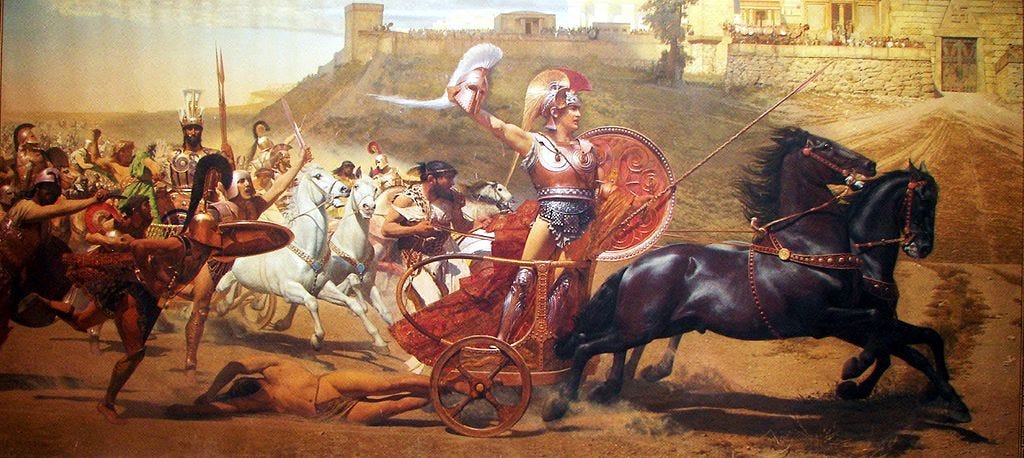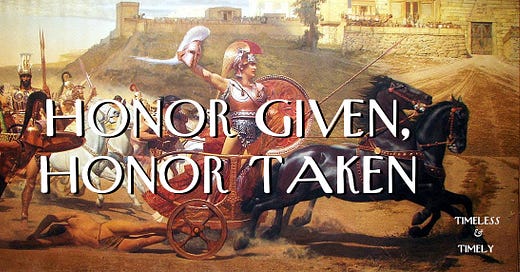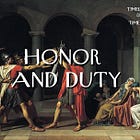
“Life every man holds dear; but the brave man
Holds honour far more precious-dear than life.”
— William Shakespeare, 1602
Does honor even matter anymore?
My previous essay tackled the responsibility of leaders to take action in the face of iniquity when they can. Essentially, “If you see something, say something.”
But buried in that argument is the assumption that they’d care about their reputation enough to act.
Or, if reputation is secondary to them, that at least they’d care enough about their fellow man that some driving ethical force would urge them to simply do the right thing.
Particularly in Washington these days, there seems to be little concern for honor. While we grow weary or cynical of motivations, it’s an environment that seems bound by hypocrisy rather than honor. By expediency over ethics.
Honor involves respect. Respect for oneself and respect for others. Through decisions and actions (or inactions), we underscore our desire to earn and show respect.
“For this with falsehood is my honour stain’d,
Is heaven offended, and a priest profaned”
— Homer, 8th century BC
Ancient Honor & Dishonor Rings True
Homer’s Iliad is woven with lessons, but one that is embedded across the entire story is the power of timê, or honor. To the ancient Greeks, honor is as valuable as life, and it is earned by virtue of accomplishments and actions.
Again and again, we see denial of honor as one of the most egregious of actions: Agamemnon took Chryseis as a prize of war but had to give her back to keep Apollo from sending a plague on the Greek army; he was dishonored in having to give her up.
What is one to do when dishonored? If you’re a character in The Iliad, you bring dishonor on another, that’s what! Agamemnon proceeded to take Achilles’ prisoner Briseis for his own, thus dishonoring Achilles.
This tit-for-tat game does nothing to restore honor. Quite the contrary. It’s reminiscent of the Old Testament retaliatory principle of “an eye for an eye.” The problem with that concept is everyone ends up blind.
Sadly, we seem to forget this overarching principle, particularly online, where the vitriol cascades like water. The ease of typing out a quick and cutting comment — to “win the Internet,” to become a general of meme wars — drives our behavior as we go for one-upmanship and gotcha moments.
Our brains may be stimulated by the release of dopamine, as we see the likes and congratulatory comments roll in, but one sad fact remains:
Dishonoring someone else does nothing to bring us honor.
Particularly when the other person doesn’t care about their own honor in the first place.
How to Honor Others
Let’s turn this on its head, though. Aside from bringing honor and respect to ourselves through our gestures, how can we bestow honor on others?
Here are four quick and easy ways to do show honor.
1. Lead by example
If you expect others to do honorable things, demonstrate that by being honorable yourself. Speak about your values, and then walk the talk. Your reputation will follow suit.
2. Surround yourself with honorable people
Mom always said, “You’re judged by the company you keep.” This was grounded in the same concept shared two centuries before by George Washington: “Associate with men of good quality if you esteem your own reputation.”
Keep reading with a 7-day free trial
Subscribe to Timeless & Timely to keep reading this post and get 7 days of free access to the full post archives.






